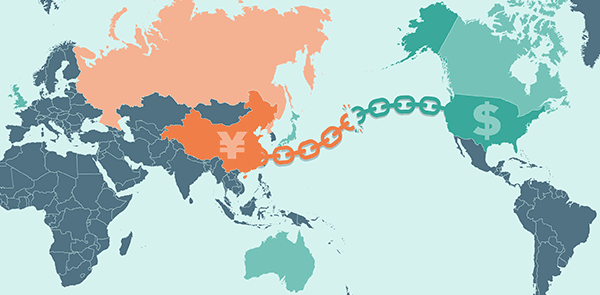|
Monday, Sept. 19 // 11:00a.m.–12:15 p.m. (ET)
The Mexico Institute will host a roundtable discussion with law and security experts to shed light on the substantive effects and possible repercussions of a constitutional reform to transfer the leadership and administration of Mexico's National Guard to the Armed Forces.

Monday, Sept. 19 // 4–5:30 p.m. (ET)
Why did the Cold War come to a peaceful end? And why did neoliberal economics sweep across the world in the late twentieth century? In The Triumph of Broken Promises, Fritz Bartel argues that the answer to these questions is one and the same.

Tuesday, Sept. 20 // 9:40–10:00 a.m. (ET)
As many parts of the world continue to experience increased oppression, authoritarianism, and growing populist trends, the fight to protect fundamental human rights and promote civil liberties is as critical as ever. Individual freedoms, access to effective remedy, and accountability for violations are central tenets in the functioning of all contemporary societies, yet governments (bearing primary responsibility in upholding this framework) are often the leading perpetrators of such abuses. This panel will share perspectives from different regions, culminating in the collective importance of fighting for peace, equality, and freedom.

Tuesday, Sept. 20 // 10–11:00 a.m. (ET)
The current focus on US supply chains has raised a number of important and complex issues for private companies and governments alike. Concerns over labor, human rights, the environment, and the application of sanction in the face of rising geopolitical challenges mean that companies must question the origin of both intermediate and finished goods in their supply chains. Compliance can be prohibitively expensive in terms of paperwork and cost, but new technologies offer ways to make compliance both more effective and less costly.

Tuesday, Sept. 20 // 11:30 a.m.–12:00 p.m. (ET)
Join us for a discussion with the Honorable Louis Susman, former United States Ambassador to the United Kingdom from 2009 to 2013, as he shares insights from his numerous interactions with Queen Elizabeth II.

Tuesday, Sept. 20 // 4:55–5:15 p.m. (ET)
At a time of extreme distress on the international system, global leadership is key to addressing the myriad challenges our world faces, especially to restore hope and rebuild trust amongst our communities and societies to move forward towards international cooperation and responsibility sharing. Join us in this critical discussion with one of the world's most poised and effective leaders Her Majesty Queen Rania Al Abdullah of the Hashemite Kingdom of Jordan in conversation with Ambassador Mark Green, President and CEO of the Wilson Center to tackle these critical issues.

Wednesday, Sept. 21 // 3–4:00 p.m. (ET)
After the October Revolution in 1917, Bolshevik leaders inherited a vast geographic expanse that was home to nearly 200 distinct ethnicities and languages. How could leaders forge cultural unity among an extraordinarily diverse citizenry? In this presentation, Title VIII Research Scholar Anna Whittington will explore Soviet leaders’ dual promotion of diversity and unity through the lens of citizenship and identity.

Thursday, Sept. 22 // 9–10:15 a.m. (ET)
Join the Mexico Institute for a presentation of the most recent CONEVAL report by their executive director, Dr. Nabor Cruz Marcelo. Following the presentation, Dr. Susan W. Parker, a professor at the University of Maryland's School of Public Policy, and Oaxaca Governor Alejandro Murat will provide remarks on the implementation of successful policies that have promoted economic development, and reduced poverty in the state.

|





